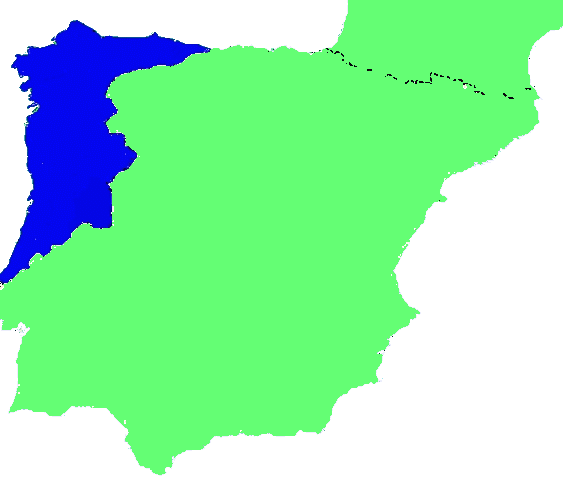
The first Roman contact began with their "protection" of the northern Greek colonies and became dominant after the Second Punic War (218-201 BCE). The complete conquest and pacification of the peninsula was not achieved until 19 BCE when Augustus finally defeated the Asturi and the Cantabri. Reorganisation and Romanisation were fast and thorough processes and Latin seems to have replaced the languages of the peninsula (with the exception of Basque) in a very short time.
Rome created three provinces on the peninsula, Baetica, Lusitania and Taraconensis. The Roman administration was a "golden age" for the privileged classes. The end was signalled by the arrival from Gaul of successive waves of German peoples that the Roman governors were unable to control.
The Vandalii after devastating Gaul, passed several years campaigning and plundering throughout the peninsula before crossing the straits to Africa.
They Suebii followed and built a strong kingdom in Galicia with its capital at Astorga. The concentration of German place-names in Galicia and down the Portuguese coast as far as the Vouga marks their settlement area.
The Visi-Goths broke and absorbed the Swabian kingdom and were powerful enough to bring the whole peninsula under their control. Their realm included southern France, which had been ceded to them by the Roman administration, and the whole of the Iberian peninsula. After the loss of their possessions in France to Clovis at the battle of Vouille (507) the Gothic capital moved from Toulouse to Toledo.
Disputes among the various Visi-Gothic kingdoms led to an invitation to the Moorish princes to intervene. This they did in 711 when Tarik led a Moorish army across the straits and began a lightning conquest. Roderic "the last of the Goths" lost a battle on the Guadalete which led to the collapse of Visi-Gothic power and the loss of the Peninsula.